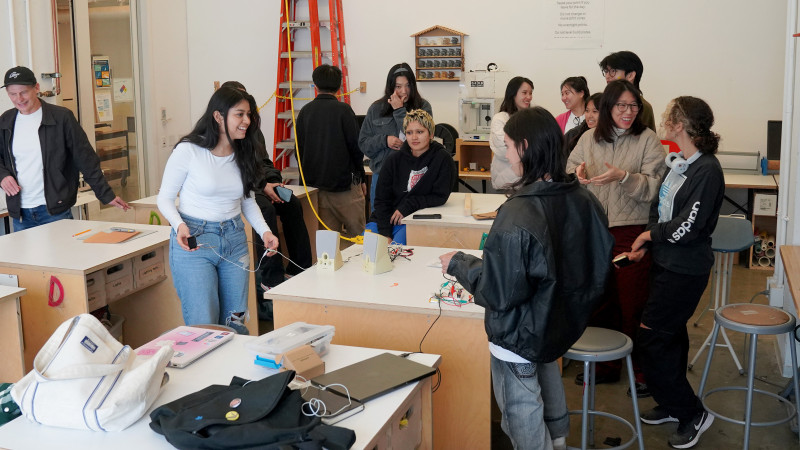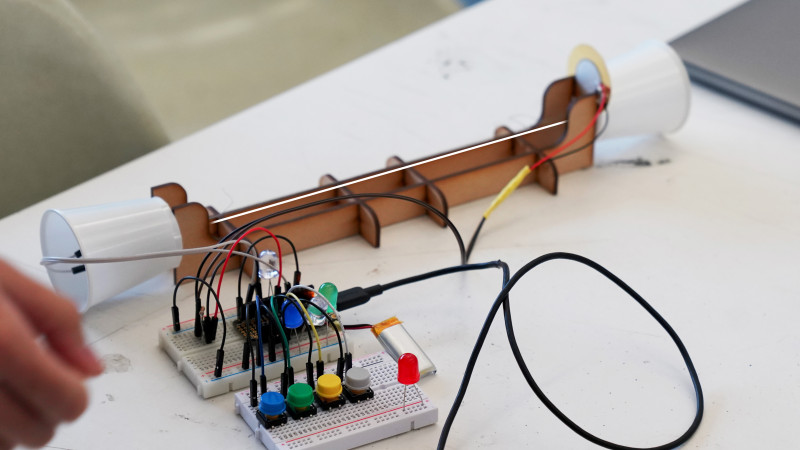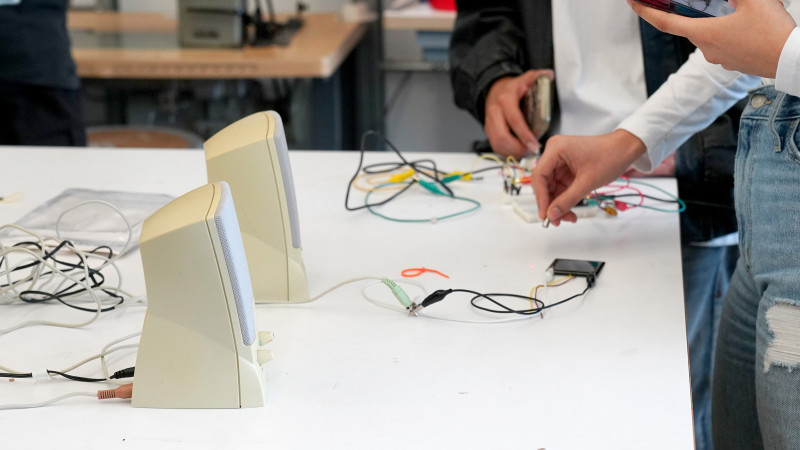TANGIBLE MEDIA

UCLA Design Media Arts
Course Schedule: Tuesday & Thursday 9:00AM - 11:50AM
Location: FabLab (Broad 2250)
COURSE STAFF
Instructor: Douglas Goodwin
Email: dgoodwin@gmail.com
Office Hours: Tuesday 1:00-2:00PM, FabLab or by appointment
Teaching Assistant: Aurora Mititelu
Email: am@ucla.edu
Office Hours: TBD
COURSE OVERVIEW
This course explores the intersection of the virtual and physical worlds through interactive media. Working with electronics opens new pathways to connect the virtual and physical—from ephemeral representations on screens and networks to tangible interactions in space and time. Through a combination of workshops, readings, lectures, critiques, and discussions, we will evaluate the role of traditional desktop computers in shaping our understanding of what is technically possible, sensible, logical, foolish, magical, and intuitive.
Students will use basic electronics and the open-source Arduino platform to create three interactive projects of increasing difficulty. By the end of the course, students will have gained practical experience in designing and building tangible media systems that bridge the virtual and physical worlds.



